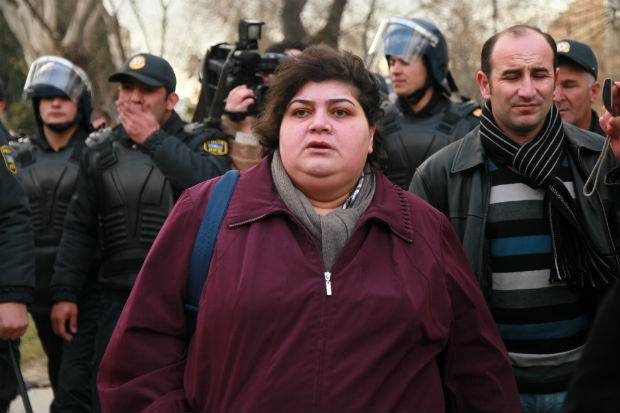Index relies entirely on the support of donors and readers to do its work.
Help us keep amplifying censored voices today.

(Illustration: Shutterstock)
The appalling scene on the strand in Nice on Bastille Day. The dead at the airport and in the Metro in Brussels in March. Terrorist attacks, designed to inflict the highest possible level of fear and apprehension among ordinary citizens, is now ordinary in Europe.
The stakes were raised in earnest in January 2015 with the carnage at the editorial offices of the satirical magazine Charlie Hebdo in Paris, where 10 staffers were brutally murdered by terrorists.
How can such atrocities be avoided or squelched? That is the question.
We know Europeans want something to be done. Living in a perpetual state of fear is not the natural consequence of living in 21st century liberal democracies.
But neither is living in a police state, where personal privacy gives way to the exigencies of war, however unlike this war compares to ones of the past; where mere idle chatter can be misconstrued to the point that it becomes the criminal offense of glorifying terrorism.
Simply put, do our rights to personal privacy and free expression and free association vanish in order to provide a safer physical environment for our residents?
The answer, or answers are not easily arrived at; the debates are nuanced and people of good will and good character can find themselves on opposite sides of issues while both hoping for a similar outcome: peace, security and an open society that respects the inherent rights of individuals to live freely.
Under these difficult circumstances, I think it is important to make the case, once again, to protect individual rights in times of civil turmoil. To do so, I issued a statement earlier this month, as the OSCE Representative on Freedom of the Media setting out the arguments in favour of protection.
First and foremost, the Organization for Security and Co-operation in Europe, the world’s largest regional security body, appears fully on board with the notion of protection of these individual rights. The participating States, in the Astana Declaration of 2010, reiterated the commitment to comprehensive security and related the maintenance of peace to respect for human rights.
And in a Ministerial Council Decisions on Preventing and Countering Violent Radicalization that Lead to Terrorism and on Counter-terrorism that was adopted in 2015, the States confirmed the notion “..that respect for human rights, fundamental freedoms and the rule of law are complementary and mutually reinforcing with effective counter-terrorism measures, and are an essential part of a successful counter-terrorism effort.”
Furthermore, any counter-terrorism measures restricting the right to free expression and free media must be in compliance with international standards, most notably Article 19 of the UN Covenant on Civil and Political Rights and strictly adhere to the principles of legality, necessity and proportionality and implemented in accordance with the rule of law.
Read alone, these pronouncements ought to put an end to any notion that the rights and values inherent in an open society should not survive the fight against terrorism. But it has not. Across the OSCE region, which comprises 57 countries from North America to Mongolia, governments are considering laws that chip away at those fundamental rights.
As a result, I have suggested that lawmakers of OSCE participating States give ample weight and consideration to the following when addressing any legislation that would affect, in law or in practice, the right of people to exercise their human rights:
Adherence to these simple rules is necessary because limiting the space for free expression and civic space advances the goals of those promoting, threatening and using terrorism and violence.
If we give up on our fundamental freedoms we will erode the very substance of democracy and the rule of law.
Recent columns by Dunja Mijatović
Dunja Mijatović : Turkey must treat media freedom for what it really is – a test of democracy
Dunja Mijatović: Why quality public service media has not caught on in transition societies
Dunja Mijatović: Chronicling infringements on internet freedom is a necessary task

Khadija Ismayilova
Khadija Ismayilova, one of Azerbaijan’s most celebrated journalists, will be given the opportunity to appeal against the decision by the Baku Court of Appeal to imprison her.
The appeal will be heard by the Supreme Court of Azerbaijan on 25 May.
Ismayilova has been arbitrarily imprisoned since December 2014 and was sentenced on September 2015 to seven and a half years in prison. Although she is officially charged with large-scale misappropriation and embezzlement, illegal entrepreneurship, tax evasion and abuse of official duties, it is widely believed that the real reason for Ismayilova’s imprisonment is her investigative journalism.
Ismayilova investigated, among other things, Azerbaijan’s human rights abuses and corruption involving the family of president Ilham Aliyev, which has since been implicated in the Panama Papers for its hidden wealth.
Earlier this month, the United Nations recognised Ismayilova’s brave reporting and self-sacrifice with the prestigious Unesco/Guillermo Cano World Press Freedom Prize.
The journalist’s mother, Elmira Ismayilova, accepted the award on her daughter’s behalf. She read a statement Ismayilova wrote from prison: “As you gather here tonight, I ask you not to laud my work or my courage, but to dedicate yourself to the work each one of you can do on behalf of press freedom and justice.”
Ljiljana Zurovac, president of the Unesco/Guillermo Cano World Press Freedom Prize 2016 jury, said: “Khadija Ismayilova highly deserves the Prize and I am happy to see that her courage and professionalism are recognised.”
The appeal will take place two days before the journalist’s 40th birthday. To mark Ismayilova’s birthday and call for her immediate and unconditional release, the Sport for Rights campaign is collaborating with others, including Index on Censorship, to co-ordinate a series of parallel protests in cities around the world.